This article was medically reviewed by Erik Kramer, DO, MPH and by wikiHow staff writer, Jennifer Mueller, JD. Dr. Erik Kramer is a Board-Certified Primary Care Physician at the University of Colorado. With over 15 years of experience, his clinical interests include obesity and weight management, diabetes care, and preventive care, as well as embracing a holistic approach to primary care. He received his Doctorate in Osteopathic Medicine (D.O.) from the Touro University Nevada College of Osteopathic Medicine and completed his residency at Central Maine Medical Center. Dr. Kramer is a Diplomate of the American Board of Obesity Medicine.
There are 7 references cited in this article, which can be found at the bottom of the page.
This article has been viewed 22,356 times.
Tension in your neck can give you a dull headache that feels a little like you're wearing a hat that's too small. They're unpleasant, but fortunately, you can typically treat them at home without needing to see a doctor. Our guide will give you some tips to ease your tension so you can start feeling better!
Steps
Take an over-the-counter pain reliever.
-
They'll help ease your discomfort, but not the tension. Over-the-counter pain relievers such as aspirin, acetaminophen (Tylenol), or ibuprofen (Advil, Motrin) are usually effective at easing the pain brought on by a neck tension headache. However, they do nothing to eliminate the tension, so you may find that your headache returns when the drug wears off.[1] X Trustworthy Source Harvard Medical School Harvard Medical School's Educational Site for the Public Go to source
- A pain reliever with caffeine may provide more relief, especially if you regularly drink caffeinated beverages.
- Avoid taking over-the-counter pain relievers more than 3 days a week. This can lead to medication overuse headaches, also called "rebound" headaches. You may also cause damage to your stomach or liver.[2] X Trustworthy Source MedlinePlus Collection of medical information sourced from the US National Library of Medicine Go to source
Rub the tender spots on your neck.
-
Give yourself a gentle neck massage. If pain in your neck is causing a headache, you may be able to ease your pain by gently rubbing the spots where the pain seems to be coming from. If the pain is caused by tight or stiff muscles in your neck, rubbing them can help loosen them up.[3] X Trustworthy Source Cleveland Clinic Educational website from one of the world's leading hospitals Go to source
- Try different massage techniques to see what works best. You might find you get some relief simply by applying steady pressure to the tender spots. It also might help to rub your fingers in circles around the point of soreness or tightness.
- If you persistently have tender spots on your neck or head, talk to your doctor since there could be other conditions causing them.
Try heat therapy or cold therapy.
-
Both heat and cold can be effective when you have a headache. Placing a heat pack on the back of your neck can increase blood flow to help release tension caused by constricted blood vessels. An ice pack, on the other hand, reduces blood flow to calm muscle spasms and reduce inflammation. Experiment to determine which works best for you.[4] X Trustworthy Source Mayo Clinic Educational website from one of the world's leading hospitals Go to source
- Apply heat or ice for only 15 minutes at a time, waiting at least 2 hours between treatments. Use a towel between your skin and your heat or ice pack to protect your skin.
Tip: If heat relieves your headache, you might also try a hot shower or bath.
Do deep-breathing exercises to help you relax.
-
Breathing deeply will relax your whole nervous system. Sit comfortably in a quiet spot away from any distractions and draw your attention to your breath. As you inhale, expand your chest and think of filling your lungs from the bottom to the top with air. Pause when your lungs are full, then exhale slowly, releasing the air from your body. Pause before inhaling again.[5] X Trustworthy Source Harvard Medical School Harvard Medical School's Educational Site for the Public Go to source
- Even a minute or two of deep breathing helps relax your mind and body, reducing tension in your muscles. You may also find that using breathing exercises to relax at the onset of a tension headache helps ease the pain or severity of that headache.
Tip: If you find you get some relief from breathing exercises, try some more advanced yogic breathing exercises to further reduce your stress and tension.
Try stress management techniques to calm yourself.
-
If you're under a lot of stress, you may notice more tension in your neck. While you can't necessarily eliminate the stress in your life, there are techniques you can employ to reduce the impact of stress on your body. Some techniques you can try are:[6] X Trustworthy Source MedlinePlus Collection of medical information sourced from the US National Library of Medicine Go to source
- Meditation
- Yoga
- Daily journaling
- Progressive muscle relaxation
Tip: Don't expect an immediate difference when you start a new stress management technique. However, if you don't feel any different or are continuing to get tension headaches after 2 to 3 weeks of consistent practice, the technique might not be working for you.
Limit the use of your phone and mobile devices.
-
Excessive screen time can cause a headache. When you look down at your phone or tablet, it can put strain on your neck, leading to tension headaches. When you have to be on your phone or another device, hold it out in front of you rather than looking down at it to keep your neck supported.[7] X Trustworthy Source Cleveland Clinic Educational website from one of the world's leading hospitals Go to source
- Be aware of your neck position when you're watching TV or reading a book or magazine as well. Take a break and move your head around every 20 or 30 minutes if you find yourself sitting in the same position for a long period of time.
Decrease your use of alcohol and nicotine.
-
Smoking (or vaping) frequently can lead to tension headaches. Even if you don't smoke, you may find you get tension headaches when you are around people who do. Alcohol use can also lead to tension headaches, even if you only drink in moderation.[8] X Trustworthy Source MedlinePlus Collection of medical information sourced from the US National Library of Medicine Go to source
- If you believe that your tension headaches are caused by the use of alcohol or nicotine and you find it difficult to quit using those substances on your own, talk to your doctor. They can recommend a program for you that will help you taper off your use and ultimately quit completely.
- Keep in mind that if your body is dependent on either of these substances, decreasing your use or quitting entirely will likely worsen your headaches in the short-term due to withdrawal.
Change your sleeping position if you sleep on your stomach.
-
If you sleep on your back or side, your neck will be more supported. Sleeping on your stomach can cause you to turn your neck at an odd angle, leading to cramped muscles and a sore neck. [9] X Trustworthy Source Cleveland Clinic Educational website from one of the world's leading hospitals Go to source
- Check your pillow as well. A pillow that's too soft may not support your head enough, which can put strain on your neck. Look for a pillow with neck support, or one that's designed specifically for people who sleep in the position you normally sleep in.
- Be careful not to oversleep. While you may think sleeping in is a good thing, it can also trigger a neck tension headache or increase the severity of a headache you would have gotten anyway.
Practice good posture when sitting and standing.
-
Hunching over puts strain on your neck. Over time, that can lead to neck tension headaches. When you're sitting, put your chair at a height that allows you to place your feet flat on the floor with your knees at right angles. Then, sit tall at the edge of the chair with your shoulders back. You should be able to look straight ahead and do whatever it is you need to do while sitting. If you can't, you're putting additional strain on your neck.[10] X Trustworthy Source MedlinePlus Collection of medical information sourced from the US National Library of Medicine Go to source
- Make it a habit to check your posture every 15 to 20 minutes if you find you start hunching over or tend to slump. This will help minimize your neck strain.
- When driving, adjust your seat so you can reach the pedals with your back firmly against the back of the seat.
- If you need to use your phone, hold it up at eye level rather than bending your neck forward to look down. Frequent bending your head down can lead to regular tension headaches and neck pain.
Tip: If you work in an office, you may need to adjust the height of your chair or put your computer on a riser so you can sit with good posture. You might also try a standing desk if your employer is willing to accommodate.
Keep a headache diary to identify possible triggers.
-
Write down when the headache came on and how long it lasted. Include things you did earlier that might have caused the headache, including any medications you took as well as food and drink. You might also rate the severity of the headache, such as on a scale from 1 to 5, along with anything you did to relieve the pain.[11] X Trustworthy Source MedlinePlus Collection of medical information sourced from the US National Library of Medicine Go to source
- You can find a sample headache diary template here: https://headaches.org/wp-content/uploads/2018/08/HEADACHE-DIARY.pdf.
- For example, you might write, "Tension headache at 4 p.m., 3 out of 5, had been sitting at my computer all afternoon. Ate a sandwich for lunch at my desk due to a deadline." From this entry, you might conclude that staring at the computer for hours on end is a possible cause of your tension headache. Another cause might be the fact that you ate at your desk rather than going out or taking a brief walk.
- One entry typically isn't enough to figure out exactly what is causing your headaches. However, over time, a pattern may emerge. For example, you might find that you tend to get tension headaches when you're working on a computer for several hours, or when you're on the phone a lot.
Tip: Showing your headache diary to your doctor will give them insight into the frequency of your headaches and what you're doing to relieve them. They can use this information to recommend treatment that might help you more.
Try complementary therapies to help your headaches.
-
Focus on therapies that promote relaxation. Complementary or alternative therapies may help decrease the frequency or severity of your tension headaches, depending on how they're triggered as well as your overall health. Therapies that can help tension headaches include:[12] X Research source
- Massage therapy: Different massage techniques focus on trigger points and chronic inflammation in your neck to release tension.
- Physical therapy: A physical therapist can prescribe stretches and exercises to strengthen and improve the flexibility in your neck muscles.
- Dry needling: A medical professional places sterile needles in trigger points on your neck and scalp, similar to acupuncture, to relieve inflammation and release tension.
- Acupuncture: A professional places sterile needles in designated "acupoints" believed to stimulate the flow of energy (called "qi"), following the theories of traditional Chinese medicine.
Get biofeedback treatment to help you learn how to control tension.
-
This technique will help you learn relaxation techniques. A medical professional places electrode patches on your body to measure your heart rate, blood pressure, and other bodily functions. They observe the results on a monitor while talking you through a guided meditation. Throughout several sessions, you'll learn how to release tension and have a healthier response to stress.[13] X Trustworthy Source MedlinePlus Collection of medical information sourced from the US National Library of Medicine Go to source
- You'll be able to watch the measurements as well. The medical professional conducting the treatment will teach you what each measurement means and help you find ways to control it.
Go to a chiropractor if your spine is out of alignment.
-
An adjustment may help ease tension in your neck. When your spine is out of alignment, you may have pinched nerves that are causing headaches. A misaligned spine also places pressure on the surrounding muscles, causing them to tense up. That tension can also lead to headaches. A chiropractor massages and adjusts your spine to correct a misalignment that might be causing your tension headaches.[14] X Research source
- The chiropractor might also recommend various lifestyle changes, including a change in diet, exercise, or taking additional vitamins or supplements.
- Have the chiropractor check for other spinal problems, such as disc herniation or nerve impingement, before they do any neck manipulation, or else you could get seriously injured.
Talk to your doctor about prescription medications.
-
Tell them your symptoms and what treatments you've tried. If OTC medications aren't working, if you find that you're having to use them too often, a stronger prescription medication might help. Give your doctor a complete history of your tension headaches and what you've done to ease the pain and prevent them.[15] X Trustworthy Source Harvard Medical School Harvard Medical School's Educational Site for the Public Go to source
- If you have recurrent headaches, your doctor might prescribe a medication such as naproxen (Naprosyn, Aleve) or amitriptyline (Elavil) to help break the cycle and prevent the headache before it starts.
See a dentist if you're clenching your jaw.
-
Clenching your jaw or grinding your teeth can cause tension headaches. Although this isn't necessarily related to your neck, it may be making your problem worse.[16] X Trustworthy Source Cleveland Clinic Educational website from one of the world's leading hospitals Go to source
- The dentist will fit you for a custom mouth guard that will protect your teeth as well as help decrease the tension in your jaw. This might help relieve your tension headaches.
- Persistent clenching can cause neck, jaw, and tooth pain, but it’s most commonly felt in the morning.
Warnings
- While headaches are painful, they're usually not dangerous. However, you should seek emergency medical treatment immediately if the headache comes on suddenly or is accompanied by a fever or vomiting. It could be a symptom of a more serious condition.[17] X Trustworthy Source MedlinePlus Collection of medical information sourced from the US National Library of Medicine Go to source⧼thumbs_response⧽
You Might Also Like
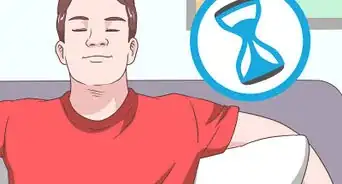
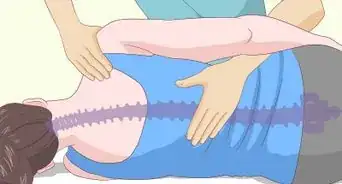 How to Relieve & Prevent Headaches & Migraines Fast
How to Relieve & Prevent Headaches & Migraines Fast
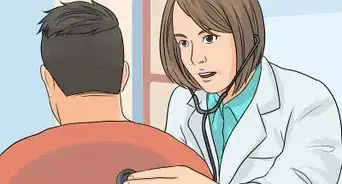

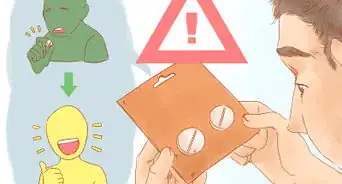 16 Science-Backed Ways to Get Rid of a Hangover Faster
16 Science-Backed Ways to Get Rid of a Hangover Faster
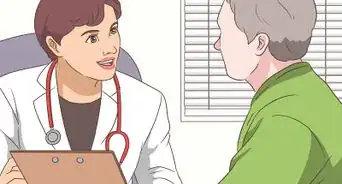

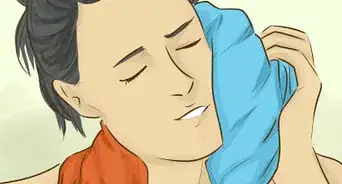
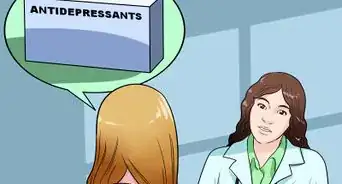

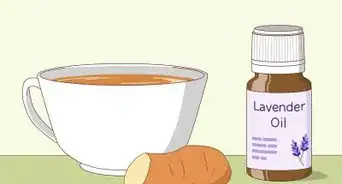
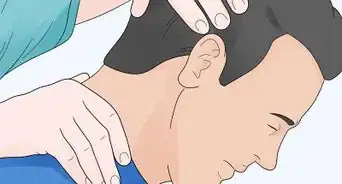 How to Stop a Headache From Lack of Sleep: Tips from an Expert
How to Stop a Headache From Lack of Sleep: Tips from an Expert
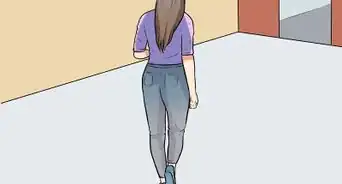
-Step-14.webp)
References
- ↑ https://www.health.harvard.edu/a_to_z/tension-headache-a-to-z
- ↑ https://medlineplus.gov/ency/article/000797.htm
- ↑ https://health.clevelandclinic.org/7-tips-for-easing-your-tension-headaches/
- ↑ https://www.mayoclinic.org/diseases-conditions/tension-headache/diagnosis-treatment/drc-20353982
- ↑ https://www.health.harvard.edu/a_to_z/tension-headache-a-to-z
- ↑ https://medlineplus.gov/ency/article/000797.htm
- ↑ https://health.clevelandclinic.org/7-tips-for-easing-your-tension-headaches/
- ↑ https://medlineplus.gov/ency/article/000797.htm
- ↑ https://health.clevelandclinic.org/7-tips-for-easing-your-tension-headaches/
- ↑ https://medlineplus.gov/ency/article/000797.htm
- ↑ https://medlineplus.gov/ency/article/000797.htm
- ↑ https://www.spine-health.com/blog/tips-relieve-headache-with-neck-pain
- ↑ https://medlineplus.gov/ency/article/002241.htm
- ↑ https://www.acatoday.org/Patients/Health-Wellness-Information/Headaches-and-Chiropractic
- ↑ https://www.health.harvard.edu/a_to_z/tension-headache-a-to-z
- ↑ https://health.clevelandclinic.org/7-tips-for-easing-your-tension-headaches/
- ↑ https://medlineplus.gov/ency/article/000797.htm
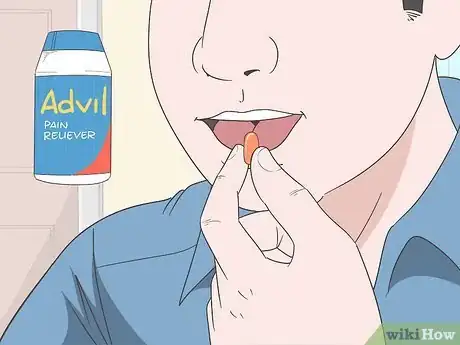
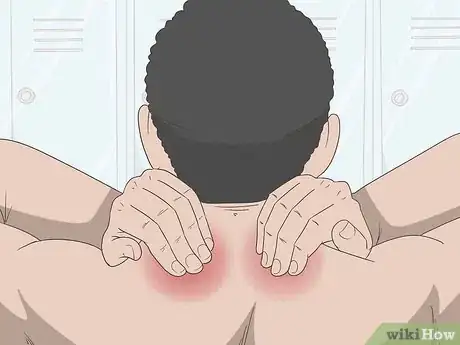
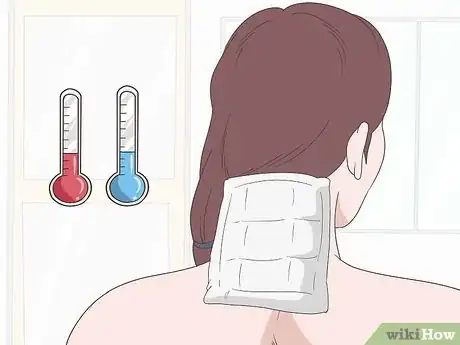
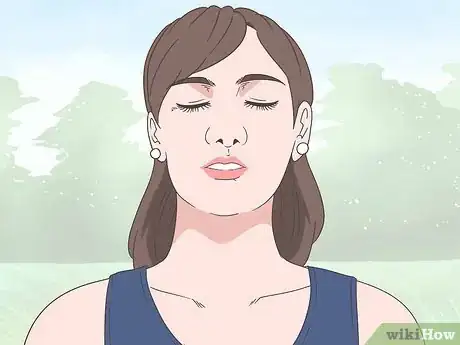
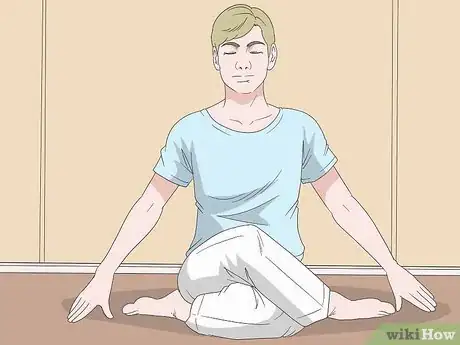
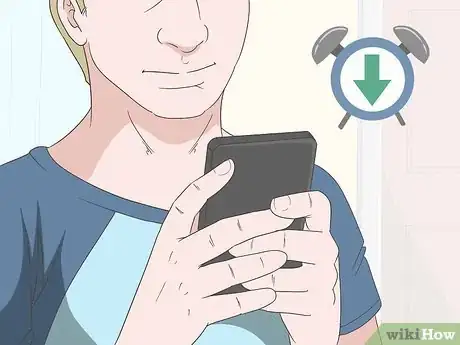
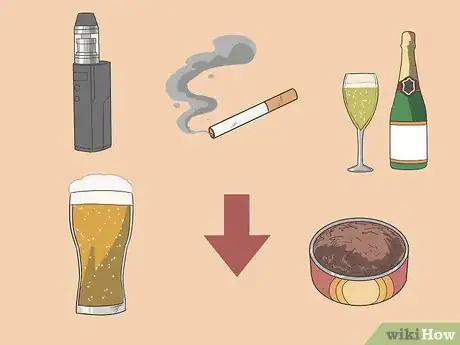
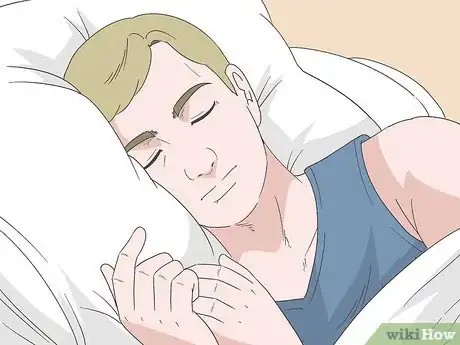
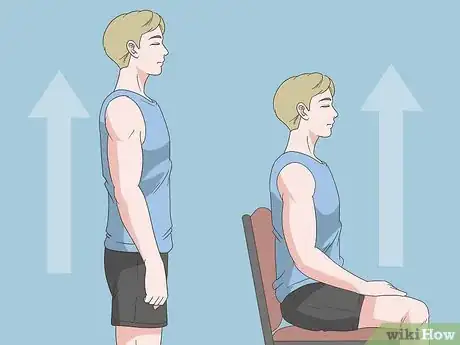
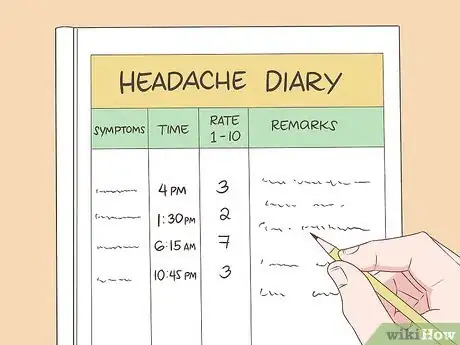
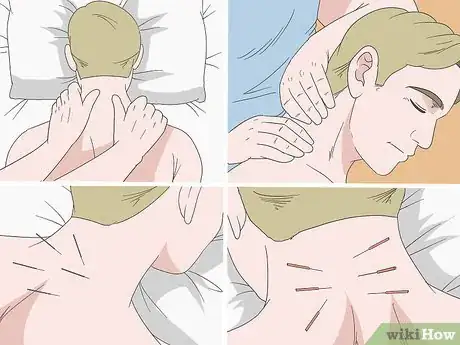
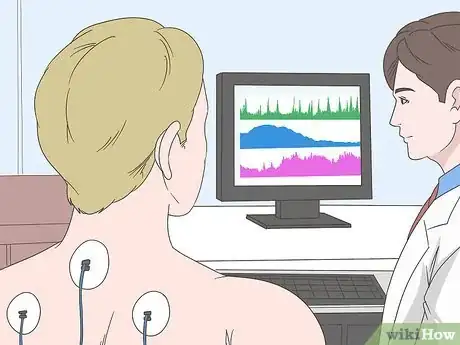
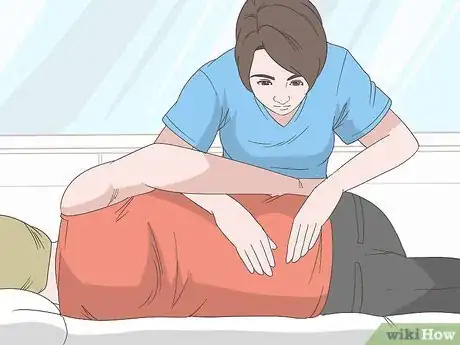
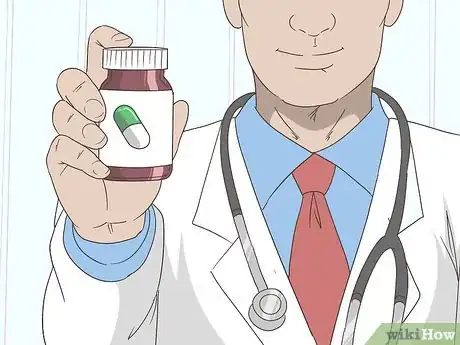
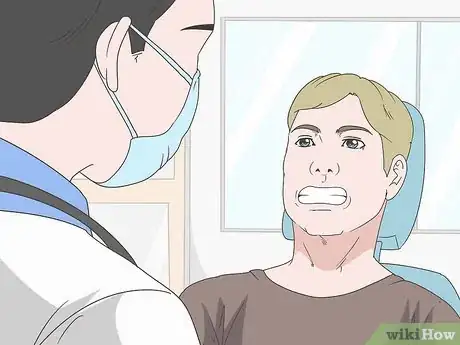







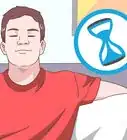
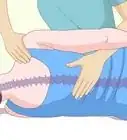
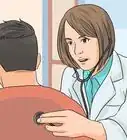





































Medical Disclaimer
The content of this article is not intended to be a substitute for professional medical advice, examination, diagnosis, or treatment. You should always contact your doctor or other qualified healthcare professional before starting, changing, or stopping any kind of health treatment.
Read More...